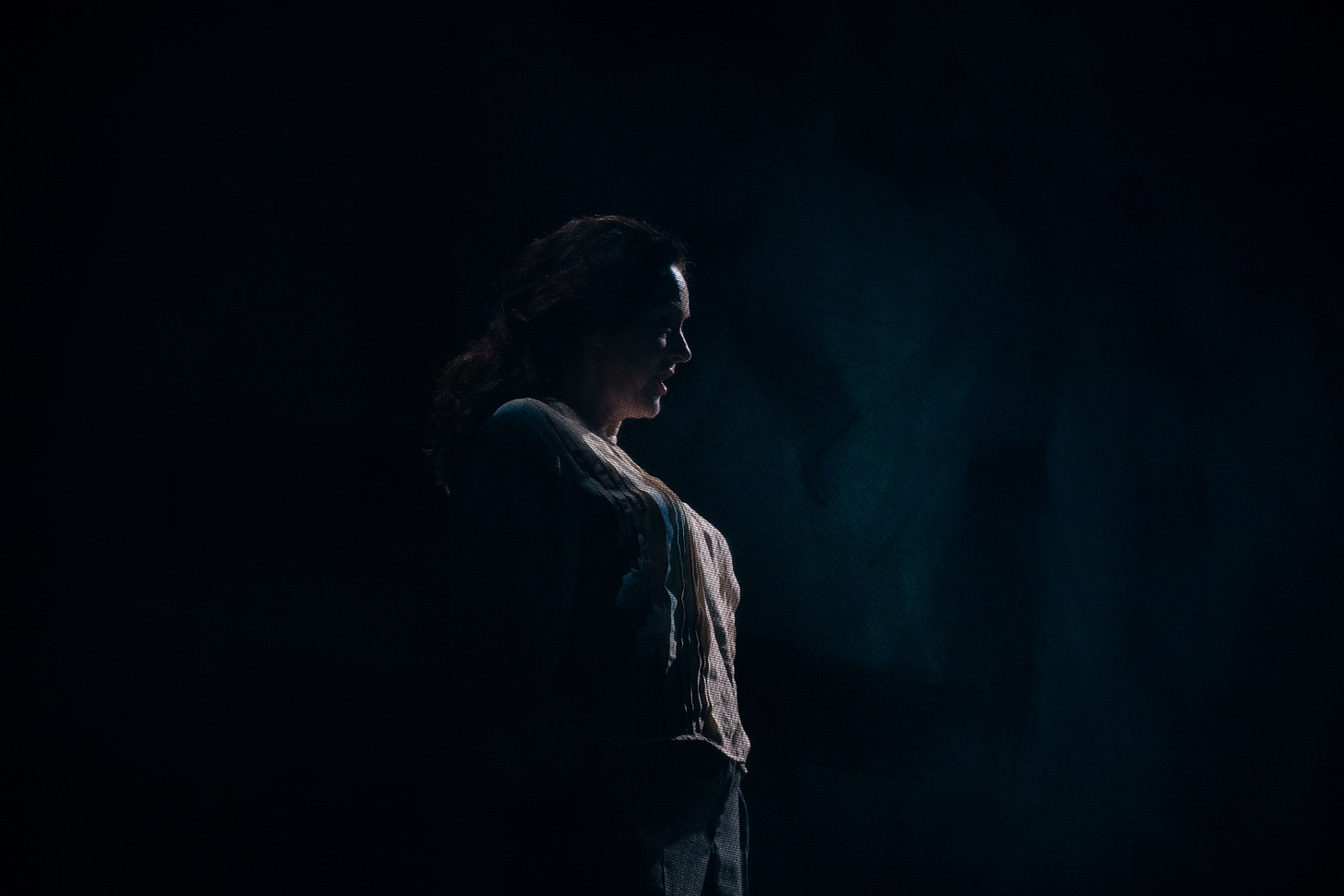To the Lighthouse review: An artist’s epic obsession with a towering marriage
A chilly family vacation weighs up life's highs and lows in this adaptation of Woolf's novel. Photo: Darragh Kane
Cork Midsummer Festival
★ ★ ★ ★
“Look at me. Someone has to admire me before I explode,” says Mr. Ramsay, a man sounding desperate, and whose private thoughts in Virginia Woolf’s 1927 novel To the Lighthouse are shucked out into the open for us listening in.
This story about a chilly family vacation on the Isle of Skye is woven from its characters’ internal thoughts - the streams of consciousness of modernist fiction – which could easily seem antithetical to adaptation. Imagine someone onstage exposing their private, serious feelings in front of others who don’t bat an eyelid.
Yet, there is an impressive logic here in Hatch Theatre Company and The Everyman’s excellent co-production. At its most fun, the adaptation painstakingly carved out by Marina Carr allows us to see how characters’ pleasantries attempt to conceal repressed irritations below the surface. “Stand straight man!” thinks Mrs Ramsay (Derbhle Crotty) of a guest at her holiday home, before politely asking: “I’m going into town later, would you like anything?”
Welcomely, the conflict between all involved is neatly mapped out. While Crotty’s redoutable Mrs. Ramsay wars and reconciles with Mr. Ramsay (a superb Declan Conlon), sullen with insecurities which threaten to consume their marriage, the painter Lily Briscoe (Aoife Duffin) is dogged by advice to find a husband and harsh critiques of her paintings. (“Women cannot paint,” says the unhappy upstart Charles Tansley, nicely played by Colin Campbell).
As Duffin’s Lily grows in resistance to her critics, Carr’s telling of the story holds a steady focus on the struggle for women’s artistry to be considered ambitious, even including an additional scene where Virginia Woolf agonises over Leonard Woolf’s feedback on the book’s manuscript. “It is a masterpiece,” says Leonard, in touching contrast to the obligated complements of Mrs. Ramsay to her husband’s creativity.
The Woolfs also do some of the heavy lifting, their discussion of the breakneck “Time Passes” section of the novel – where no familiar character is behind the steering wheel – assisting the production in the follow-through. As the Ramsay’s summer house lies abandoned for years, the careful details of Aedín Cosgrove’s set become stripped away, against the cathedral-drama of Philip Stewart’s tremendous music, while the re-evaluated poet Augustus Carmichael (an entrancing Olwen Fouéré) chronicles a decade of war and death.
There are moments where Woolf’s infinite perspective risks losing our attention, or when the diamond-like compression of images can become too much to take in during a first watch. More often are we given something undoubtedly clear. It’s difficult not to admire the invention of director Annabelle Comyn and audio-visual designer José Miguel Jiménez when, during a dinner scene fraught with hostilities, a video projection holds a more hospitable sight of guests leaning into the warm comforts of good company. “It is a triumph,” says Nick Dunning’s gentle William Bankes, paying homage to Mrs. Ramsay.
Such seems to be generous spirit of the play, weighing up the struggles of life while also crystalizing moments which are full and uplifting. Like Lily Briscoe, you might become grated by Mrs. Ramsay’s constant persuasions of marriage, but, as realised in the painter’s touching commitment to honour her friend by capturing her in a portrait, you realise it isn’t all bad. “Why get married Lily? Because of love,” she says.
Available On Demand until 27th June.
Hello friends.
In case you missed it, I had two reviews published in the Irish Times this past week: Mespil in the Dark (“Suspenseful mystery in a charming Dublin bohemia”) and One Good Turn (“A reassuring comedy about long-time illness”).
- Chris




